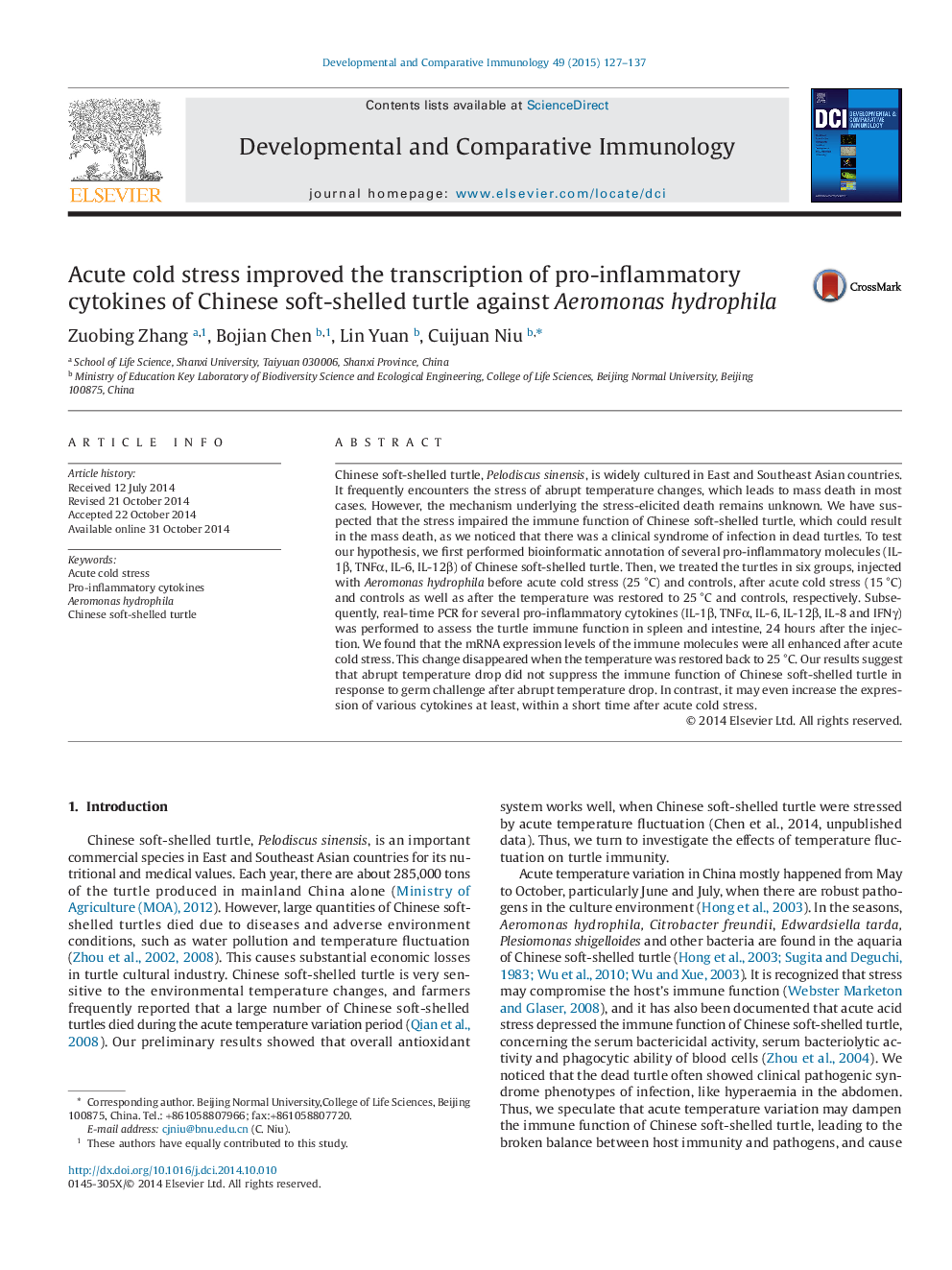| Article ID | Journal | Published Year | Pages | File Type |
|---|---|---|---|---|
| 2429090 | Developmental & Comparative Immunology | 2015 | 11 Pages |
•IL-1β, TNFα, IL-6, IL-12β of Chinese soft-shelled turtle were molecularly characterized.•Turtles were injected with Aeromonas hydrophila before and after acute cold stress, and after the temperature was restored.•The transcription levels of IL-1β, TNFα, IL-6, IL-12β, IL-8 and IFNγ were investigated in spleen and intestine at 24 hour post the injection.•The expression of the selected cytokines at mRNA level was generally enhanced after acute cold stress in spleen and intestine.
Chinese soft-shelled turtle, Pelodiscus sinensis, is widely cultured in East and Southeast Asian countries. It frequently encounters the stress of abrupt temperature changes, which leads to mass death in most cases. However, the mechanism underlying the stress-elicited death remains unknown. We have suspected that the stress impaired the immune function of Chinese soft-shelled turtle, which could result in the mass death, as we noticed that there was a clinical syndrome of infection in dead turtles. To test our hypothesis, we first performed bioinformatic annotation of several pro-inflammatory molecules (IL-1β, TNFα, IL-6, IL-12β) of Chinese soft-shelled turtle. Then, we treated the turtles in six groups, injected with Aeromonas hydrophila before acute cold stress (25 °C) and controls, after acute cold stress (15 °C) and controls as well as after the temperature was restored to 25 °C and controls, respectively. Subsequently, real-time PCR for several pro-inflammatory cytokines (IL-1β, TNFα, IL-6, IL-12β, IL-8 and IFNγ) was performed to assess the turtle immune function in spleen and intestine, 24 hours after the injection. We found that the mRNA expression levels of the immune molecules were all enhanced after acute cold stress. This change disappeared when the temperature was restored back to 25 °C. Our results suggest that abrupt temperature drop did not suppress the immune function of Chinese soft-shelled turtle in response to germ challenge after abrupt temperature drop. In contrast, it may even increase the expression of various cytokines at least, within a short time after acute cold stress.
